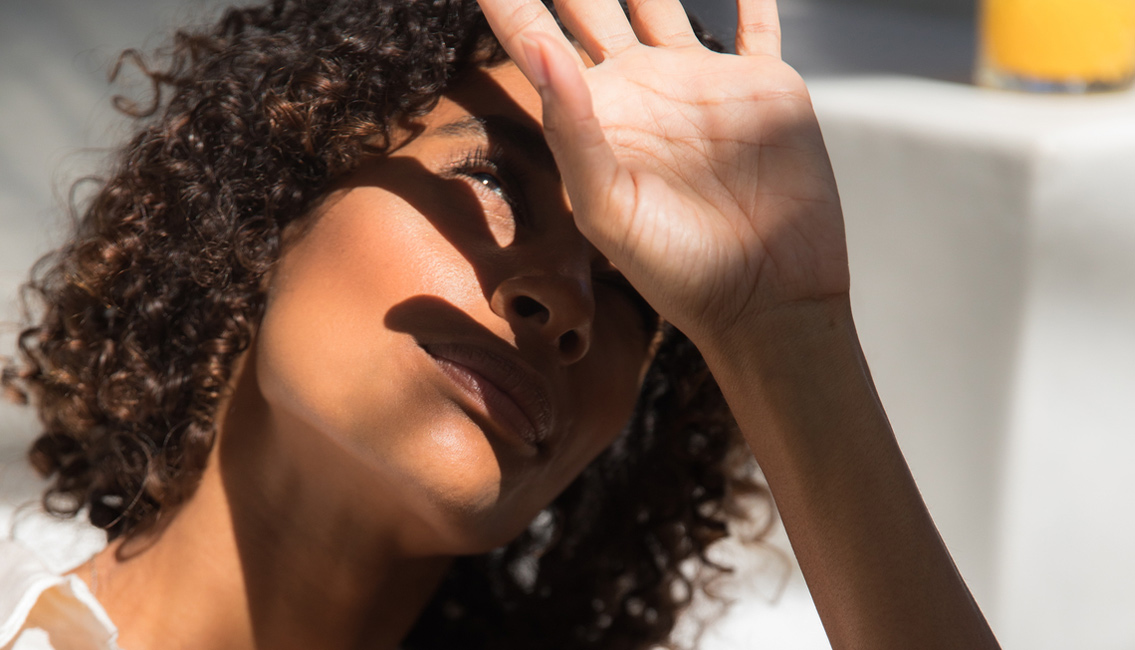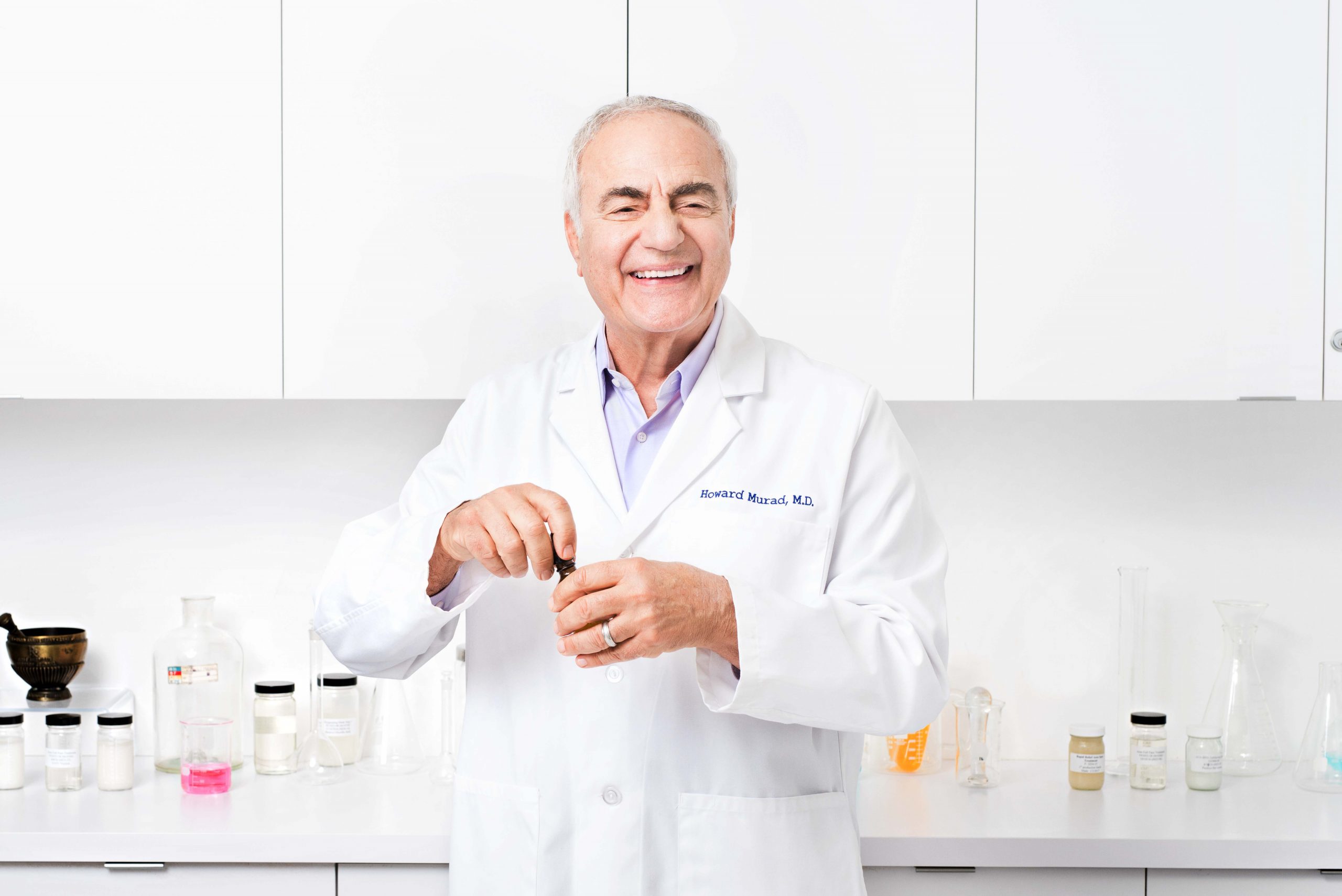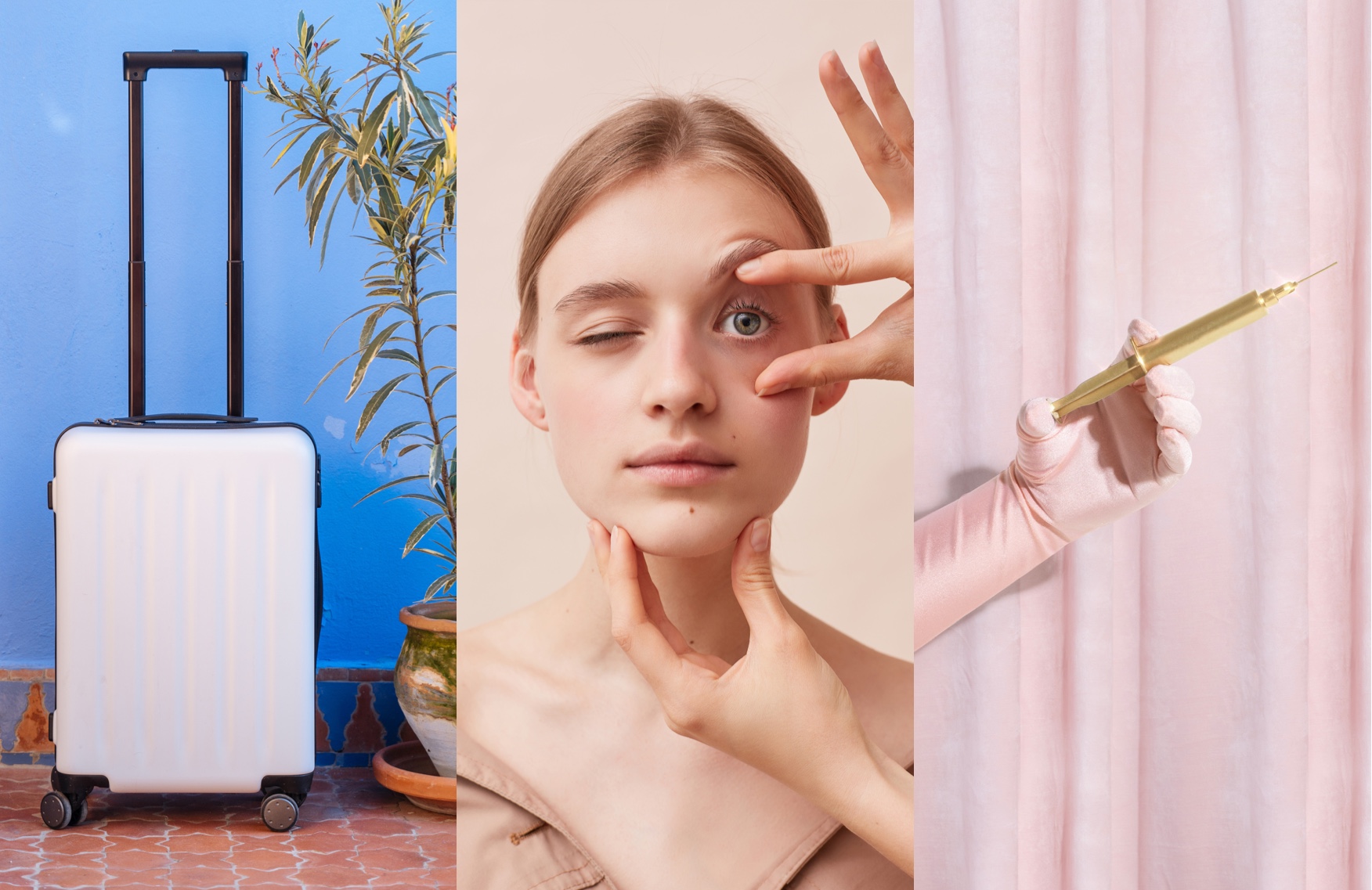‘The hidden brain in your skin’: How the mind-skin connection is stronger than you think

“Be kind to your mind to help your cells stay resistant to damage.”—Dr. Howard Murad, board-certified dermatologist and founder of Murad Skincare
When you’re feeling embarrassed, do you blush? When you’re feeling nervous or overjoyed, do you get goosebumps? Although the connection may not immediately come to mind (pun intended), these are just a couple obvious manifestations of how your mind is inextricably linked to your skin. Or as neuroscientist Dr. Claudia Aguirre puts it, it’s evidence of “the hidden brain in your skin.”
“Skin is highly innervated and intricately connected to the brain and central nervous system, just as other sensory organs are,” explains Dr. Aguirre, who received a Ph.D. in neuroscience from USC. “We’re discovering that the skin has a lot of neuro potential that’s gone unrecognized. For example, just as our eyes have receptors that transduce light photons into signals to the brain that we process as vision, we’re discovering that our skin also has light receptors. Similarly, we’re discovering that we have olfactory receptors in hair follicles, just as we do in the nose. How they work remain a mystery, but the more we learn, the more we realize how important skin is. These capabilities are what I mean by the hidden brain in skin.”
So as much as we’d like to simply slather on a cream to “fix” a condition like eczema, acne or the like, it’s becoming harder to ignore how your mind can significantly affect your skin, too. Here are four factors to remember, if in doubt about the power of the mind-skin connection.
The Psychodermatology Factor
The link between your mind and skin has given rise to an entire—and relatively new—subspecialty of psychiatry and dermatology called psychodermatology. In short, practitioners of this burgeoning field strive to improve patients’ skin by treating their mind. Though the “Gut-Brain-Skin Axis” (basically how your digestive system, psyche and skin can affect one another) was discovered in 1930s at the University of Pennsylvania, the causal mind-to-skin relationship practiced in psychodermatology still has a way to go to be universally established. However, one thing is clear: This connection is based in biology and has already been demonstrated in peer-reviewed studies, with places like the Psychodermatology Specialty Clinic at Harbor-UCLA Medical Center bound to multiply and gain in popularity as total wellness trickles into every aspect of life. (For more on the latest in this fascinating field of psychodermatology, directly from one of the best in the biz, click here.)
The Psychological Profile Factor
State-of-minds and psychological profiles are often associated with skin conditions, according to both researchers and dermatologists. For instance, a Stanford study published in the Archives of Dermatology in 2003 found that college students had acne flare-ups during finals, when they reported more stressed mental states. Moreover, in the thousands of patients Dr. Murad has seen over the years, he says, “People who have eczema or atopic dermatitis have tendencies toward an interesting psychological profile. They tend to be overprocessed in many ways. They’ll work really hard to become the best student or the perfect child. They’ll put a lot of pressure on themselves to succeed.” He adds that this profile is commonly seen in dermatologists’ offices everywhere, and while there is a genetic component to eczema, Dr. Murad has also always tried to dig deeper and understand what’s happening in his patients’ lives to tackle the condition from all angles.
The Stress + Skin Barrier Factor
“When you’re under stress, you release cortisol stress hormones that have a deleterious effect on skin, specifically the skin barrier,” Dr. Murad explains. “Cortisol is needed, it protects you, but like so much else, too much of a good thing can turn into a bad thing.” What exactly is that bad thing for your skin? Most commonly, it’s dehydration. Cortisol can cause a slowdown in hyaluronic acid production, which leads to moisture loss. This dehydration can then compromise the skin barrier that defends against all manner of skin woes ranging from premature aging to inflammation to environmental threats. And remember, while most people associate the word “stress” with psychological (e.g., sadness, anxiety) and psychosocial (e.g., relationship troubles, financial worries) stress, there’s also physical (e.g., injuries, unhealthy eating) and psycho-spiritual (e.g., finding meaning, purpose) stress that can drive up cortisol levels to negatively affect skin.
The Covid Factor
Mental health tendencies exacerbated by the pandemic should not be forgotten when it comes to skin health, according to Dr. Murad. “With Covid, people can become more obsessive-compulsive to different extremes,” he says. “When we look at acne, for example, I’ve seen so many cases that I call ‘acne imitators,’ which isn’t acne at all. It can be acne excoriee—this might be a person who has one of those magnifying mirrors, and now that they’re home all the time, they’re constantly examining their skin and seeing these perceived imperfections that they start to pick, which is introducing surface bacteria and causing red bumps. There’s no pimple, no whitehead—just a picked-at red spot.”



